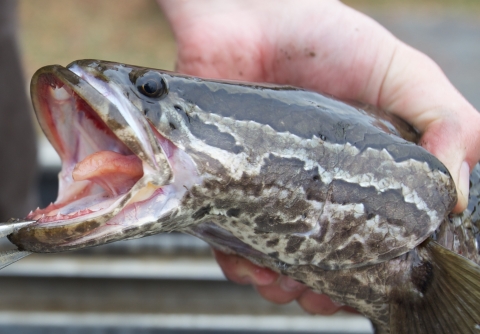Before embarking on your next fishing trip, here are a couple of steps you can take to help you improve your catch while protecting native wildlife from invasive species invasive species
An invasive species is any plant or animal that has spread or been introduced into a new area where they are, or could, cause harm to the environment, economy, or human, animal, or plant health. Their unwelcome presence can destroy ecosystems and cost millions of dollars.
Learn more about invasive species .
Step 1: First and foremost, purchase a fishing license from your state.
Revenues from fishing license sales help pay for the sustainable management of the fishery resources in your state.
Step 2: Get to know the fishing regulations in your area.
Contact your state department of fish and game to find our what recreational fish species that you have a high probability of catching during your fishing trip. While you’re at it, find out if there are any known non-native or invasive species known to inhabit the waters you will be fishing today?
Step 3: Don’t Dump Your Bait
Using live bait is a great way to catch big fish, but it can also contribute to the spread of aquatic invasive species. Live minnows, which are a popular live bait choice can be improperly identified by your local bait and tackle shop and might not be native to the waterways you are planning to fish.
Step 4: Clean Drain Dry
Whenever you leave the water, clean off visible aquatic plants, animals, and mud from all equipment before leaving water access. Rinse all equipment and boat hulls. Drain motor, bilge, live well, and other water containing devices before leaving water access. And dry everything for at least five days OR wipe with a towel before reuse.
Step 5: Choose the right gear
Some equipment can actually help prevent the spread of invasive species. Rubber soled waders and fishing boots are easier to clean and decrease the chances of spreading invasive species like zebra mussels or Elodia.
Now you know how important it is to do your homework before going fishing. An informed angler will not only take great pride in their catch but also find solace in the fact that they took to the time to make sure they did not contribute to the spread of aquatic invasive species in their local waterways and by doing so directly contributed to the sustainability of native recreational fish species in their home waters.






